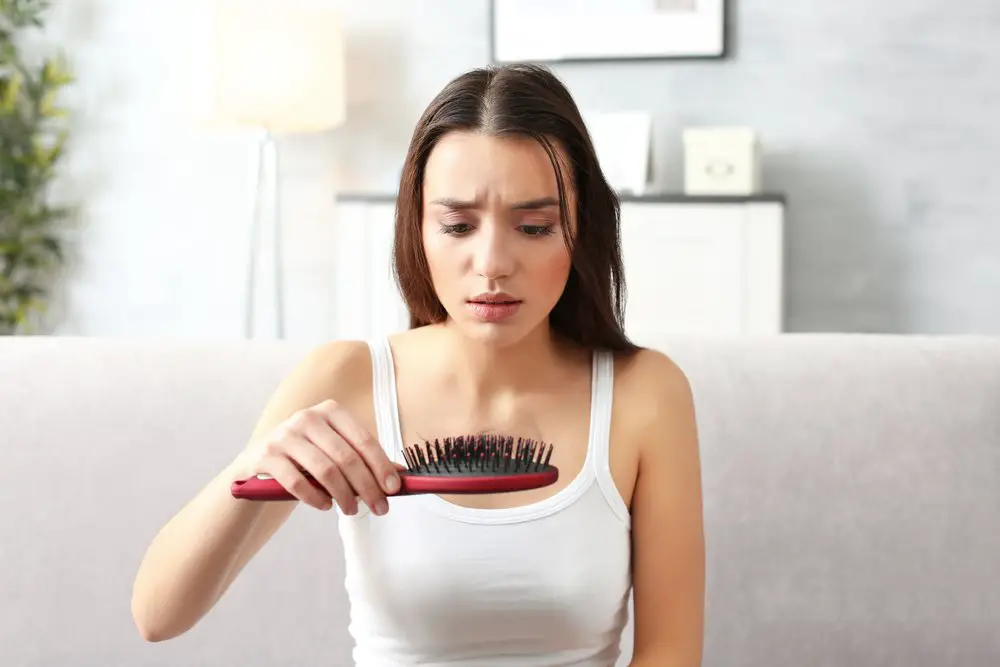Table Of Content

Sometimes a larger strip of skin containing multiple hair groupings is taken. This procedure doesn't require hospitalization, but it is painful so you'll be given a sedation medicine to ease any discomfort. Possible risks include bleeding, bruising, swelling and infection. It’s possible to reverse many types of stress-related hair loss over time, Proudman said. However, it’s important to seek guidance from a doctor because some more serious medical conditions can cause hair loss as well.

document.getElementsByTagName('head') .appendChild(rs);
In these cases, a person may notice that more hair is falling out or that fewer hairs are growing back. Both men and women can be affected, according to the Mayo Clinic. Whether or not you're already dealing with stress-related hair loss or are worried it's on the horizon, maintaining healthy hair and scalp habits is always a good idea. Unfortunately, not really, given that this type of hair loss occurs months after a stressful event. That being said, Gaunitz says that making sure you're not deficient in vitamin D3 and ferritin can help minimize the likelihood of telogen effluvium occurring in the first place.
Traction alopecia
Alopecia on the Rise After COVID, Study Suggests - Medpage Today
Alopecia on the Rise After COVID, Study Suggests.
Posted: Wed, 10 Jan 2024 08:00:00 GMT [source]
Alopecia areata is another type of hair loss that can be triggered by stress. This type of alopecia is believed to be related to the immune system. It usually causes a very distinctive type of hair loss, where small coin-sized bald patches appear across the scalp, face, and body. It usually lasts around 6 months, except for cases of chronic telogen effluvium, which lasts longer. No specific treatment exists, but lifestyle and dietary changes can be effective in beginning hair regrowth.
Life Work
This is a strong indicator that your hair survived through a normal life. Stress symptoms are linked to the body’s “fight, flight or freeze” response. This is a survival response to stressful or potentially dangerous situations. Our body releases stress hormones such as cortisol which help us through this particular situation.
Frontal fibrosing alopecia

If your hair loss is due to a medical condition, the cost of a wig might be covered by insurance. Explore Mayo Clinic studies testing new treatments, interventions and tests as a means to prevent, detect, treat or manage this condition. The exact cause of any particular case of alopecia areata often can’t be determined, Proudman said, but factors such as stress, shock, grief, illness or accidents can trigger it.
In 2021, a study in mice published in the journal Nature found a potential mechanism. Researchers subjected mice to stress, which increased the animals’ levels of cortisol, the body’s stress hormone. Higher levels of cortisol meant the mice’s hair follicles remained in an extended resting stage, where the follicles remained inactive. When hair follicles are inactive, hair doesn’t grow, yet the mice continued to shed hair at their normal rate.
Correcting the underlying problem is often all that’s needed to help stop hair loss. If your hair is thinning or falling out, you’re probably trying to figure out why. If your hair loss is due to stress, worrying about it could make the problem worse.
Reach out to your healthcare provider as soon as you notice hair loss, especially if it causes additional stress. Because one of the main causes of telogen effluvium is a stressor on your body, it’s important to identify the cause. Once you address the cause, most cases of telogen effluvium will resolve without treatment within six to eight months. In most cases, your healthcare provider can diagnose telogen effluvium without any testing. They may recommend further testing, including blood tests or a scalp biopsy, if they suspect a condition or illness has caused telogen effluvium. Long-term, or chronic, stress puts people at risk for a variety of health problems.
What is telogen effluvium?
If you go through a stressful experience and are worried that your hair may start falling out after the fact, it's also wise to start taking photos of your hair. "I always have my patients take baseline photos and then repeat these every two to three weeks," says Bhanusali. That way, if you do start experiencing hair loss, you'll be able to have concrete evidence of where you started. He suggests snapping pics of your full frontal hairline, including the temples and middle part. "The hair usually grows back on its own, although there are things we can do to help speed up the process," notes Dr. Bhanusali. He says topical steroids can help slow shedding, while treatments such as minoxidil or finasteride can help stimulate hair growth.
Certain health factors outside of your control can also cause hair loss. Having family members with pattern hair loss increases your risk. Androgenic alopecia, the most common type of hair loss, is hereditary. In cisgender men, signs of balding usually appear by age 30; in cisgender women, these start in their 40s, 50s, or 60s. Following pregnancy, people go through many hormonal changes, including drops in estrogen.
The symptoms of hair loss caused by stress can vary on the person and the type of hair loss you’re experiencing. The different types of hair loss that can be caused by stress are telogen effluvium, alopecia areata and trichotillomania. People often experience telogen effluvium after illness, severe trauma, or stressful life events. She says alopecia areata is another common cause of hair loss, which usually causes small patches of baldness but can affect the whole scalp and body. The good news here is that, most often, after this sudden shedding, the hair growth cycle will normalize, and your hair will eventually grow back normally, says Gaunitz.
TE may be the second most common type of hair loss seen by dermatologists. Keep reading to learn how stress can affect your hair health, whether its effects are permanent, and what you can do to help encourage regrowth. There is also Polycystic Ovarian Syndrome (PCOS) for women to consider. Roughly 5 million women in America suffer from PCOS which is a hormonal imbalance in which the ovaries produce too much testosterone.
In many cases, someone with telogen effluvium has fully recovered from a stressor or illness and doesn’t see a connection between it and their hair loss. Hair loss is devastating for most people, especially when you do not know the reason behind it. While chronic stress can be a reason behind excessive hair loss, temporary stress is usually not the main cause. No matter what the reason is, it is important to pinpoint the exact reason behind your hair loss to the best of your abilities. If you cannot seem to find the reason on your own, consider asking your physician for his opinion as well.

No comments:
Post a Comment